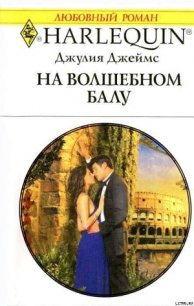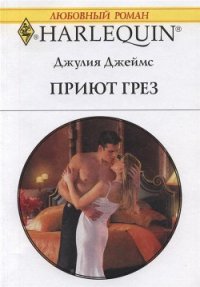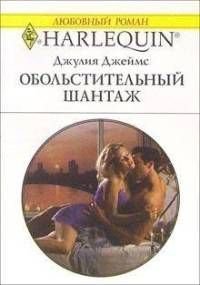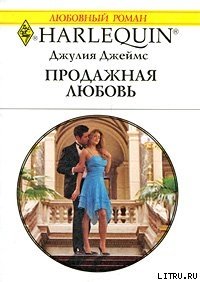Julia Ward Howe - Richards Laura E. (бесплатная регистрация книга TXT) 📗
Flossy had a very successful afternoon tea while I was with her. She had three ladies of the Civitas Club and invited about one hundred of her neighbors to hear them read papers. It wasn't suffrage, but it was good government, which is about the same thing. The parlors looked very pretty. I should think seventy or eighty came and all were delighted. Did I write you that at Philadelphia she made the most admired speech of the occasion? She wore the brocade, finely made over, with big black velvet top sleeves and rhinestone comb, and they 'plauded and 'plauded, and I sat, grinning like a chessy cat, oh! so welly pleased.
"July 1. [Oak Glen.] Despite my severe fatigue went in town to church; desired in my mind to have some good abiding thought given me to work for and live by. The best thought that came to me was something like this: we are careful of our fortune and of our reputation. We are not careful enough of our lives. Society is built of these lives in which each should fit his or her place, like a stone fitly joined by the builder. We die, but the life we have lived remains, and helps to build society well or ill. Later on I thought that it sometimes seems as if a rope or chain of mercy would be let down to pull some of us out of sin and degradation, out of the Hell of passion. If we have taken hold of it and have been rescued, shall we not work to have others drawn up with us? At such moments, I remember my old wish to speak to the prisoners, never fully realized."
"August 13. Finished my poem for the Bryant Centenary, of which I have despaired; my mind has seemed dull of late, and I have had a hard time with this poem, writing what appeared to me bald-doggerel, with no uniting thought. In these last three days, I have hammered upon it, and bettered it, coming in sight of a better vein and to-day, not without prayerful effort, I got it about ready, D.G."
To Maud
Oak Glen, August 27, 1894.
... An interesting French gentleman has been giving readings at Mrs. Coleman's. He read us Corneille's "Cid" last evening with much dash and spirit. It is a famous play, but the sentiment is very stilted, like going up a ladder to shave one's self. I was at Providence on Friday to meet a literary club of ladies. I read to them the greater part of my play, "Hippolytus," written the summer before Sammy was born, for Edwin Booth. It seemed very ghostly to go back to the ambitions of that time, but the audience, a parlor one, expressed great satisfaction.... I 'fesses that I did attend the Bryant Centenary Festival at Cummington, Mass. I read a poem written for the occasion. Charles Dudley Warner and Charles Eliot Norton were there, and Parke Godwin presided.
"August 31. To Newport with Flossy, taking my screed with me, to the meeting of Colonial Dames, at the rooms of the Historical Society, one of which is the old Seventh-Day Baptist Church, which my great-grandfather, Governor Samuel Ward, used to attend.... Bishop Clarke made the closing address, full of good sense, sentiment and wit—a wonderful man for eighty-two years of age."
To Laura
Oak Glen, September 6, 1894.
Q. What has been your mother's treatment of you latterly?
Ans. Quite devilish, thank you.
Q. Has her conduct this past season been worse than usual?
Ans. Much as usual. I regret to say, couldn't be worse.
(Family Catechism for 1894.)
Oh! I've got a day to myself, and I've got some chillen, and I'm going to write to 'em, you bet.
You see, Laura E., of the plural name of Dick, there warn't no summer, only one of those patent, boiled-down contrivances, all shrivelled up, which if you puts them in water, they swells out, but there warn't no water (Encycl. Brit., Article "Drought"); and so the dried-up thing didn't swell, and there warn't no summer, and that is why you haven't heard from me.... I'm sorry, anyhow, that I can't allow you the luxury of one moment's grievance against me, but I can't; I may, now and then, forget to write ("!!!!" says L. E. R.), but I 'dores you all the same. I carry the sweet cheer of your household through all my life. Am drefful glad that you have been to camp this season; wish I could go myself. Only think of Celia Thaxter's death! I can hardly believe it, she always seemed so full of life....
"September 28. Here begins for me a new period. I have fulfilled as well as I could the tasks of the summer, and must now have a little rest, a day or so, and then begin in good earnest to prepare for the autumn and winter work, in which A.A.W. comes first, and endless correspondence."
To Maud
241 Beacon Street, December 19, 1894.
Last Sunday evening I spoke in Trinity Church, having been invited to do so by the rector, Dr. Donald. Wonders will never cease. The meeting was in behalf of the colored school at Tuskegee, which we A.A.W.'s visited after our Congress. I dressed myself with unusual care. Dr. Donald gave me the place of honor and took me in and upon the platform in the chancel where we all sat. Governor Greenhalge was the first speaker. I came about fourth, and to my surprise was distinctly heard all over the house. You may easily imagine that I enjoyed this very much, although it was rather an anxious moment when I stepped forward to speak.... We are all much shocked at the death of dear Robert Louis Stevenson of which you will have heard before this reaches you. What a loss to literature!
"January 1, 1895. I was awake very early and made the prayer that during this year I might not say one uncharitable word, or be guilty of one ungenerous action."
"January 6.... My afternoon service at the Women's Educational and Industrial Union.... The day was very stormy and Mrs. Lee met me at the carriage, offering to excuse me from speaking to the five persons who were in attendance. I felt not to disappoint those five, and presently twenty-three were present, and we had a pleasant talk, after the reading of the short sermon."
"January 8.... Felt much discouraged at waking, the long vista of work opening out before me, each task calling for some original brain-work, I mean for some special thought worth presenting to an audience. While I puzzled, a thought came to me for this day's suffrage speech: 'The kingdom cometh not with observation.' The silent, gradual, wonderful growth of public sentiment regarding woman suffrage, the spreading sense of the great universal harmony which Christ delivered to us in the words and acts of a few years, and which, it seems to me, is only now beginning to make itself generally felt and to shape the world's councils increasingly."
"January 25. I awoke this morning overwhelmed by the thought of my lecture at Salem, which I have not written. Suddenly a line of my own came to me, 'Had I one of thy words, my Master,' and this brought me the train of thought, which I shall endeavor to present. The one word which we all have is 'charity.' I wrote quite a screed and with that and some speaking shall get through, I hope.... Got a good lead of thought and felt that I could supply extempore what I had not time to write. Harry and Fanny had a beautiful dinner for Lady Henry Somerset."
"January 26. Lunch and lecture in Salem. A dreadful storm; I felt that I must go. The hackman and I rolled down the steps of the house, he, fortunately for me, undermost and quite stout of person; otherwise the shock would have been severe and even dangerous...."
[N.B. The terrified hackman, picking himself up, found her already on her feet.
"Oh! Mrs. Howe," he cried, "let me help you into the house!"




